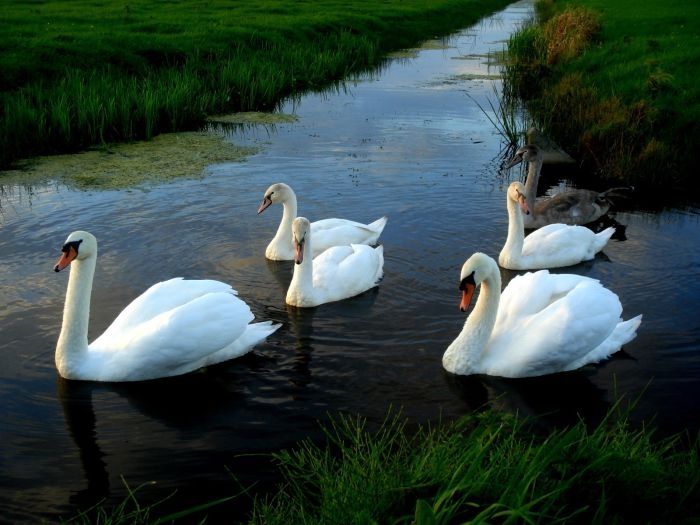|
|
Swan Bird
|
The Irish legend of the Children of Lir is about a stepmother transforming her children into swans for 900 years. In the legend The Wooing of Etain, the king of the Sidhe (subterranean-dwelling, supernatural beings) transforms himself and the most beautiful woman in Ireland, Etain, into swans to escape from the king of Ireland and Ireland's armies. The swan has recently been depicted on an Irish commemorative coin.
In Norse mythology, there are two swans that drink from the sacred Well of Urd in the realm of Asgard, home of the gods. According to the Prose Edda, the water of this well is so pure and holy that all things that touch it turn white, including this original pair of swans and all others descended from them. The poem Volundarkvida, or the Lay of Volund, part of the Poetic Edda, also features swan maidens.
In the Finnish epic Kalevala, a swan lives in the Tuoni river located in Tuonela, the underworld realm of the dead. According to the story, whoever killed a swan would perish as well. Jean Sibelius composed the Lemminkäinen Suite based on Kalevala, with the second piece entitled Swan of Tuonela (Tuonelan joutsen). Today, five flying swans are the symbol of the Nordic Countries and the whooper swan (Cygnus cygnus) is the national bird of Finland.
A swan is one of the attributes of St Hugh of Lincoln based on the story of a swan who was devoted to him. In Latin American literature, the Nicaraguan poet Rubén Darío (1867–1916) consecrated the swan as a symbol of artistic inspiration by drawing attention to the constancy of swan imagery in Western culture, beginning with the rape of Leda and ending with Wagner's Lohengrin. Darío's most famous poem in this regard is Blasón - "Coat of Arms" (1896), and his use of the swan made it a symbol for the Modernismo poetic movement that dominated Spanish language poetry from the 1880s until the First World War. Such was the dominance of Modernismo in Spanish language poetry that the Mexican poet Enrique González Martínez attempted to announce the end of Modernismo with a sonnet provocatively entitled, Tuércele el cuello al cisne - "Wring the Swan's Neck" (1910).
|
|









